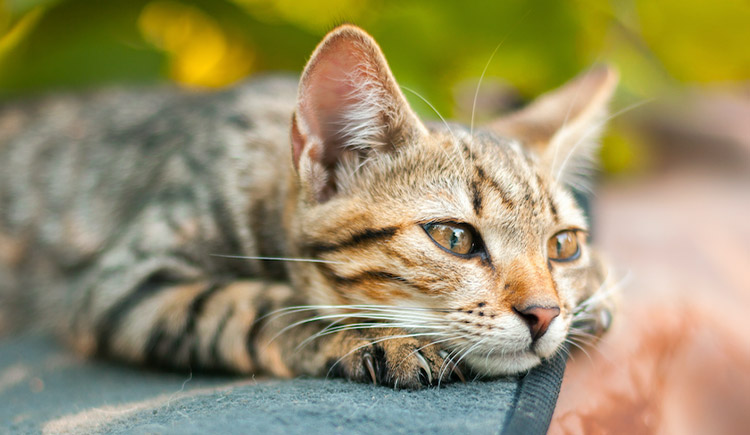Feline Calicivirus is a highly common and contagious respiratory disease among cats. It can cause mild to severe oral and respiratory diseases in felines. Although most pet parents take complete care of their furry cats, they often neglect minor signs and symptoms of respiratory infection. This disease targets the mouth, respiratory tract, intestines and joints of cats. Calicivirus is mostly prevalent in breeding colonies, shelters, not properly ventilated houses, etc.
Most cats recover easily from this disease, however, some are left with rare strains that are fatal for them. Therefore, we strongly recommend pet parents to vaccinate their cats.
What Is Calicivirus In Cats?
Calicivirus is one of the most contagious respiratory diseases in cats. The virus can spread through the environment, making every cat vulnerable to the infection. It is mainly associated with the upper respiratory system, which causes great discomfort to cats and even deteriorates their health to a greater extent.
What Are The Signs Of Calicivirus?
Below are the signs and symptoms of Calicivirus in cats –
- Discharge from eyes
- Decrease in appetite
- Ulcers on the tongue
- Pneumonia
- Breathing difficulties
- Fever
- Arthritis
- Improper movements
The symptoms may take a few days to appear and initially, there will be mild signs such as sneezing, coughing, drooling or fever. The severity of the disease depends on the strains that the cat has contracted. If you observe high fever, ulcers in the mouth, bleeding under the skin, inflammation, and swelling in the body, you need to rush to your vet as these are the signs of severe Calicivirus infection. It is vital to get immediate treatment in such cases as more than 50% of cases have proven fatal when the cats were not treated right away.
How Does The Disease Spread Among Cats?
The infection in cats can spread through their saliva or secretion from the nose. Thus, when the cat sneezes, the bacteria gets transmitted into the environment, causing infections to other cats in close proximity. Even humans who have come in contact with infected cats can transmit it to other felines. Young kittens are at a higher risk of getting contaminated with this virus and the infection is more severe in kittens.
What Are The Treatments for Calicivirus?
There is no treatment available to stop the virus, so the cats are usually treated at home. Proper diet, treatments and lots of TLC will strengthen the cat’s immune system and promote faster recovery. In severe cases, the cat is hospitalized and treated with antibiotics, IV and fluids until she recovers.
How To Care For Cats With Calicivirus?
You need to be very cautious when your cat is in recovery stage. Keeping everything around the house clean and hygienic is essential as it will prevent any kind of re-infection. By deep cleaning the house, you kill all the bacteria present in the surrounding. Moreover, ensure you keep the cat’s eyes and nose clean to avoid any accumulated secretion. Moreover, provide your kitty with highly nutritious diet so she can recover faster and combat the infection.
Most cats recover easily unless they have developed pneumonia because, in that situation, it can be fatal. Therefore, vaccinations are highly recommended if you want to protect your beloved cat from such a grave infection.





